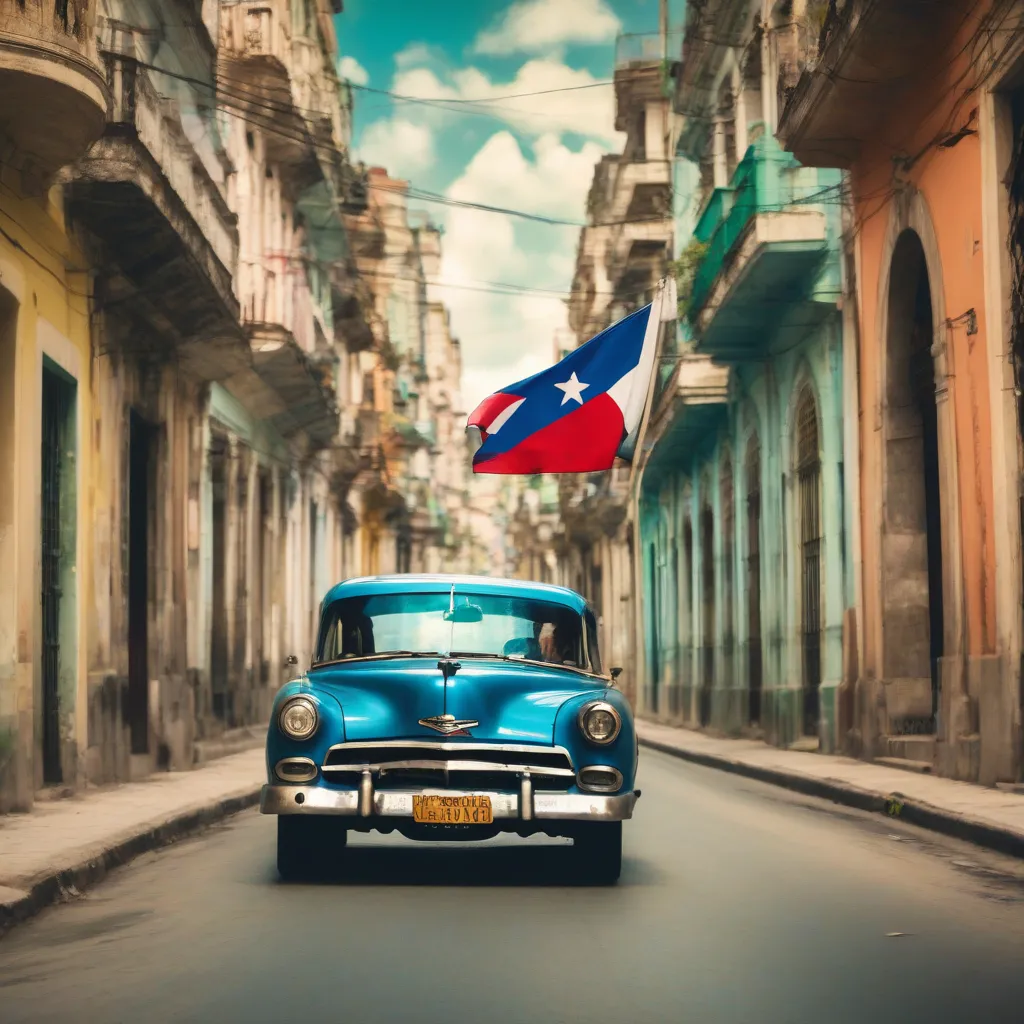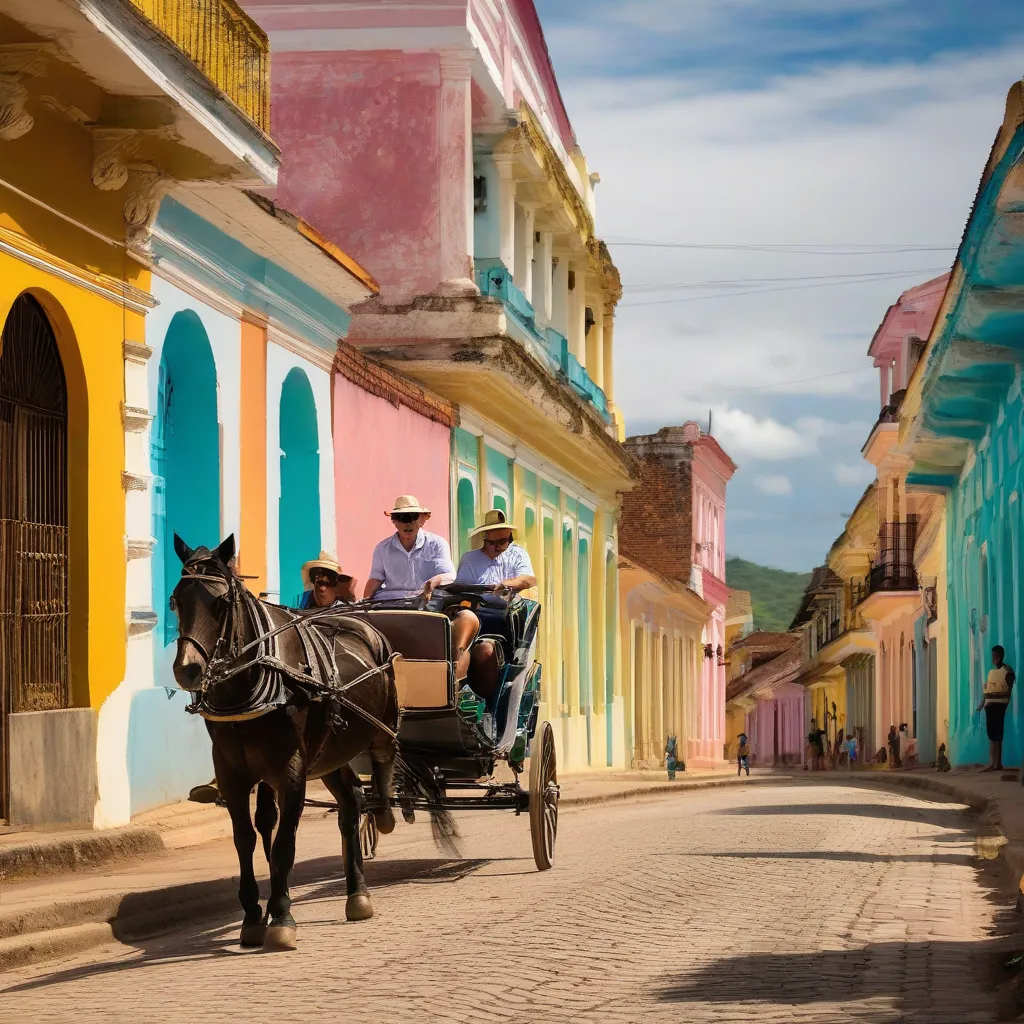“Have you ever dreamt of dancing salsa in Havana or cruising down the Malecón in a vintage convertible?” That was the question my grandfather, a seasoned traveler with a twinkle in his eye, posed to me one day. It sparked a desire in me to experience the vibrant culture and history of Cuba. But like many Americans, I wondered, “Can You Travel To Cuba From The United States?”
The answer, like most things related to travel, is not a simple yes or no. While there are restrictions, traveling to Cuba from the US is possible with proper planning and understanding of the regulations.
Navigating the Waters: US Travel Restrictions to Cuba
The United States has had a complex relationship with Cuba for decades, resulting in travel restrictions that can seem confusing. However, don’t let this deter you! Traveling to Cuba is achievable under specific categories authorized by the US government. One common misconception is that general tourism is entirely prohibited. While it’s true that leisurely beach vacations don’t fall under authorized travel, there are numerous other ways to experience this captivating island nation legally.
Your Cuban Adventure Awaits: Authorized Travel Categories
So, how can you legally travel to Cuba from the United States? Here’s a breakdown of the authorized travel categories:
1. Support for the Cuban People: This category encourages meaningful interactions with Cuban citizens and aims to promote their independence from the Cuban government. Activities can include staying in casas particulares (private homestays), dining at locally owned restaurants, and engaging with Cuban entrepreneurs, artists, and locals.
2. Family Visits: US citizens and residents with family in Cuba can apply for this category, allowing them to visit close relatives.
3. Professional Research and Meetings: Academics, journalists, and professionals attending conferences or conducting research related to Cuba can travel under this category.
4. Educational Activities: This category encompasses organized educational trips involving cultural exchange programs, workshops, or people-to-people interactions.
5. Religious Activities: Individuals participating in religious programs or missions affiliated with a US-based religious organization can travel for this purpose.
6. Public Performances, Clinics, Workshops, Athletic and Other Competitions, and Exhibitions: This category covers individuals participating in or supporting amateur and semi-professional events in Cuba.
7. Humanitarian Projects: Individuals traveling to Cuba to engage in humanitarian work or provide volunteer services fall under this category.
8. Activities of Private Foundations or Research or Educational Institutes: This category allows travel for individuals representing private foundations or research/educational institutes to conduct research, provide training, or engage in other related activities.
9. Exportation, Importation, or Transmission of Information or Information Materials: This category applies to individuals involved in activities related to the exchange of information or informational materials.
Planning Your Journey: Essential Tips for US Travelers
Before You Go:
- Choose your travel category wisely: Ensure your planned activities align with the requirements and restrictions of your chosen category.
- Obtain a Cuban Tourist Card (Visa): This card, often referred to as a “pink card,” serves as your visa to enter Cuba. You can usually obtain this from your airline when flying directly from the US or through a visa agency.
- Secure travel insurance: While not mandatory for entry, it’s highly recommended to have comprehensive travel insurance that covers medical emergencies and potential trip disruptions.
- Currency Exchange: The Cuban Convertible Peso (CUC) is widely used by tourists. US credit and debit cards are generally not accepted in Cuba, so it’s essential to carry enough cash (US dollars) and exchange it upon arrival at the airport or official exchange bureaus (CADECAs).
Exploring Cuba:
- Embrace the local culture: Immerse yourself in Cuban culture by staying in casas particulares, trying authentic cuisine, and engaging with friendly locals.
- Explore beyond Havana: While Havana is captivating, consider venturing to other cities like Trinidad, Cienfuegos, or Viñales to experience the diverse beauty and culture of Cuba.
- Learn basic Spanish phrases: While English is spoken in tourist areas, knowing some basic Spanish phrases will enhance your interactions and allow you to connect with locals more authentically.
FAQs: Unraveling Common Questions About Traveling to Cuba from the US
1. Can I use my US credit card in Cuba?
Generally, US credit and debit cards are not accepted in Cuba due to the ongoing US embargo. It’s crucial to carry enough cash (US dollars) to exchange for Cuban Convertible Pesos (CUC) upon arrival.
2. What is the best time to visit Cuba?
The best time to visit Cuba is during the dry season, which runs from November to April. The weather is pleasant with lower humidity, making it ideal for exploring outdoor attractions.
3. Is it safe to travel to Cuba?
Cuba has a relatively low crime rate and is generally considered safe for travelers. However, it’s always wise to exercise caution, safeguard your belongings, and be mindful of your surroundings.
4. What are some must-visit destinations in Cuba?
Cuba boasts a wealth of cultural and historical gems. Some must-visit destinations include:
- Havana: Explore Old Havana, a UNESCO World Heritage site, cruise along the Malecón, and immerse yourself in the city’s vibrant music scene.
- Trinidad: Step back in time in this charming colonial town with cobblestone streets, colorful buildings, and a lively atmosphere.
- Viñales: Discover the breathtaking beauty of the Viñales Valley, a UNESCO World Heritage site, known for its lush green tobacco fields, limestone cliffs, and traditional farming methods.
 Cuba Travel Restrictions
Cuba Travel Restrictions
Travel with Respect and an Open Mind
“Traveling to Cuba is like stepping into a time capsule,” remarks travel writer, Sarah Jones, author of “Discovering the Soul of Cuba.” “The vibrant culture, warm hospitality, and captivating history offer a truly unique experience.”
When planning your trip to Cuba from the US, remember to research thoroughly, choose a travel category that aligns with your purpose, and immerse yourself in the local culture. While navigating the regulations may seem daunting, the rewards of experiencing Cuba’s magic are well worth the effort.
 Exploring Cuba
Exploring Cuba
Ready to embark on your Cuban adventure? Visit travelcar.edu.vn for more insights and travel tips to plan your unforgettable journey.
Have you ever traveled to Cuba or dreamt of visiting this captivating island? Share your thoughts and experiences in the comments below!

